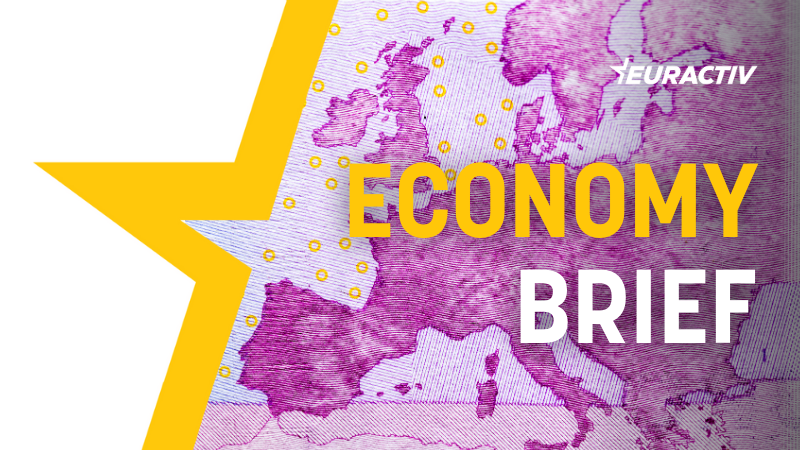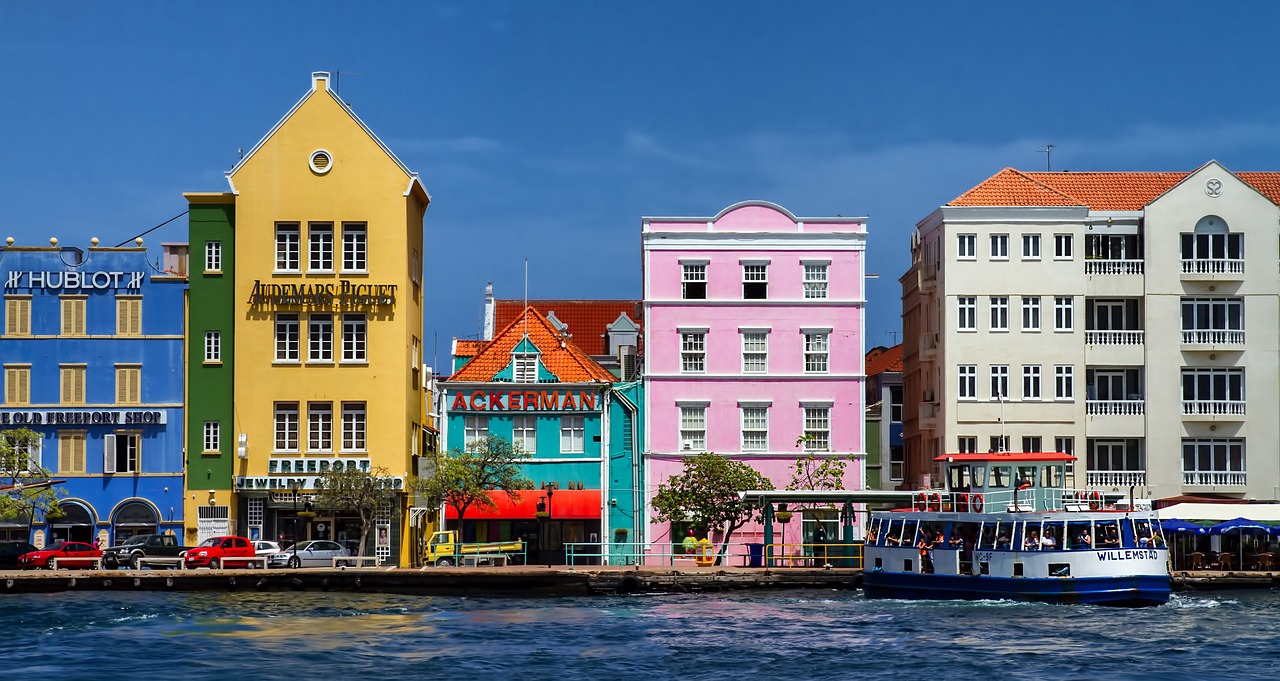Bussiness
Lawsuit alleges Cooke Aquaculture using shell companies to skirt U.S. law | CBC News
Cooke Aquaculture, one of New Brunswick’s largest companies, has asked for dismissal of a U.S. lawsuit accusing it of using a complex web of shell companies to break anti-foreign ownership laws.
Saint John-based Cooke Aquaculture has owned Omega Protein, in Virginia, since 2017. Omega is affiliated with another company that operates a Chesapeake Bay menhaden fishery, a small baitfish used to make fishmeal, fish oil and other products.
The menhaden fishery under Omega has concerned environmental activists, who say the company is overfishing a fish that many species up the food chain depend on in the Chesapeake Bay, which is slightly smaller than the Bay of Fundy.
The lawsuit alleges Cooke is violating the American Fisheries Act, which requires 75 per cent of a company fishing in the U.S. to be owned by a U.S. citizen.
The lawsuit alleges that the total value Omega has fished while “falsely certifying compliance” with U.S. citizenship laws exceeded $2 billion between 2017, when Cooke bought it, and 2021, when the lawsuit was launched.
Cooke Inc. began as a family business in Blacks Harbour on the Bay of Fundy in 1985. It now owns 12 companies operating in 14 countries with more than 13,000 employees worldwide. The company describes itself as “the largest private family-owned seafood company in the world.”
And Virginia is not the only place where the company has drawn controversy. There have been worries about farmed salmon escaping into the wild, and general pushback for how the company operates, in Washington, British Columbia, Nova Scotia and at home in New Brunswick.
The lawsuit provoked by baitfishing, filed in the southern district of New York, alleges Cooke knowingly misled U.S. authorities about its foreign ownership of Omega by creating a shell company to operate the menhaden fishery.
Under the False Claims Act, private citizens are allowed to file sue on behalf of the U.S. government against people they believe have defrauded the government.
“As a result of their fraudulent scheme, defendants have illegally harvested from United States waters many millions of dollars’ worth of fish to which they are not entitled,” the lawsuit says.
None of the allegations made against Cooke have been tested in court.
The lawsuit was filed by Chris Manthey of New York, described in the lawsuit as a “professional investigator and researcher,” and W. Chiles Benson of New Jersey, described as someone working in the fisheries management industry who “occasionally receives non-public information” about fishing companies, including Cooke and Omega.
CBC News was unable to reach Manthey or Benson through their lawyer.
The lawsuit says the alleged scheme was accomplished through a restructuring of Omega after the 2017 purchase, by transferring Omega vessels to another company, Ocean Harvesters.
That company was then sold to a shell company called Alpha VesselCo (operating as Ocean Fleet Services) in Delaware, which the lawsuit says is 20 per cent owned by Omega and 80 per cent owned by U.S. citizen Seth Dunlop.
But the lawsuit describes Dunlop as “a figurehead,” longtime Cooke employee and nephew of Cooke CEO Glenn Cooke.

“From the beginning, each of these closely connected persons, as well as Omega, shared an understanding that Cooke and Omega would control the Omega vessels and the Delaware shell,” the lawsuit says.
The lawsuit goes on to allege that Cooke even bragged to potential investors before purchasing Omega that it would still be controlled by an employee who was the CEO’s nephew.
Family is a big part of Cooke business. In the company’s disclosure statement filed in this lawsuit, it says that 87.65 per cent of Cooke Inc. is owned by the Cooke family. CEO Glenn Cooke is the only person who owns any voting shares in the company, it goes on to say.
Cooke denies wrongdoing
Cooke spokesperson Joel Richardson said in an email statement that the company denies all allegations of wrongdoing.
The lawsuit names many Cooke-owned or affiliated companies, starting with Cooke Inc., and going down the line through Cooke Aquaculture Inc., Cooke Omega Investments Inc., Cooke Seafood USA Inc., Omega Protein Corporation, Ocean Fleet Services Inc., Ocean Harvesters, and Alpha VesselCo LLC.
Also named as defendants are Cooke CEO Glenn Cooke, Seth Dunlop, his father Gregory Dunlop, vice-president Global Risk Management at Cooke. Also named are Bret Scholtes, former Omega CEO, and Montgomery Diehl, an Omega executive.
In a motion to dismiss filed jointly by Alpha VesselCo., Seth Dunlop, Gregory Dunlop and Diehl on July 9, they call the purchase of Omega “a routine business transaction,” where government regulators were fully aware of the sale and even issued the company a fishing licence.

The company also argues that the False Claims Act requires the government to relinquish property or money and that fishing licences fit neither category.
“The net result of the transaction, which is a U.S. citizen-owned fleet entering into an agreement to sell its catch to a foreign-owned processor, is expressly permitted under federal law,” the motion to dismiss says.
The statement also says the U.S. government was told that Dunlop had previously worked for Cooke and had family ties, although neither of those is illegal. The lawsuit also admits Dunlop is a U.S. citizen, the motion says.
“Federal law does not prohibit familial or prior employment relationships between the U.S. citizen owner and the foreign processor, although the baseless insinuation that it does is the crux of [the lawsuit].”
All of the Cooke-owned companies named as defendants also filed motions to dismiss the case.
Menhaden at risk in bay, group says
In addition to the allegations of foreign-ownership fraud, Omega has long been accused in the Chesapeake region of what critics call overfishing of menhaden.
“They’ve been fishing in our waters for decades, and it’s been a controversial fishery over the years,” said Steve Atkinson, chair of the board of Virginia Saltwater Sportfishing Association, which has called for an end to menhaden reduction fishing in the Chesapeake Bay.
Menhaden, also known as mossbunker or pogey, are a critical forage fish eaten by larger fish, mammals and birds. They’re so important to the ecosystem that they’re often called ‘the most important fish in the sea,” Atkinson said.
“And if you suddenly reduce the availability … it can have a huge impact on the entire ecosystem.”
Atkinson said company fleets use large nets known as purse-seines to catch schools of menhaden. Planes are used to spot the schools and help the boats locate them. Virginia is the only state on the east coast that allows a menhaden reduction fishery, he added.
The fish are inedible by humans, so Omega practises reduction fishing. The menhaden is harvested and sold to Omega’s processing plant in Reedville, Va., and cooked and ground down for things such as fishmeal pellets, cat food, fertilizer, and fish oil.
“And of course everyone knows those fish pellets also feed the salmon farms that are located in Canada,” Atkinson said.
Cooke spokesperson Joel Richardson refused to say if Cooke uses processed menhaden as food for its salmon farming in New Brunswick. However, a page of Omega’s website detailing what products the company makes, has a photo of a Cooke Aquaculture salmon-farming pen in New Brunswick.
“Adding fish meal and fish oil to aquaculture diets promotes optimal development, growth, and reproduction,” the webpage says.
The species is not considered overfished along the entire coast, but Atkinson said the concerns are specifically about the Chesapeake Bay.
“Too many of these fish are coming out of the bay, and we believe it is very likely harming the ecosystem of the bay.”
Chris Moore, the Virginia executive of the Chesapeake Bay Foundation, and said there’s not scientific data to know if menahden are overfished in the bay because the state has blocked studies. Omega is the only company operating the menhaden reduction fishery in the bay, he said.
The fishery is controlled by the Atlantic Marine States Fisheries Commission, which manages the fishery on a coast-wide instead of state-by-state basis. The state of Virginia then allocates its state-specific quantity by region.
“So when you have this very efficient fishery taking place in somewhat of a closed body of water, are we catching too many of these fish in this area and keeping those fish from carrying out their ecological role?” Moore said.
“That’s unfortunately a question we can’t answer yet.”

On its website, Omega says it is not overfishing, and it includes statistics about how many eggs the fish produce and endorsements from some marine fishery commissions.
“Our fishing partner at Ocean Harvesters is committed to fishing in a responsible manner; equally respecting the environment in which we operate and the health of the menhaden population that we harvest,” the website says.
Moore said public outcry over the fishery began early this century.
“It’s something that a lot of people want to see good, scientific answers about.”









